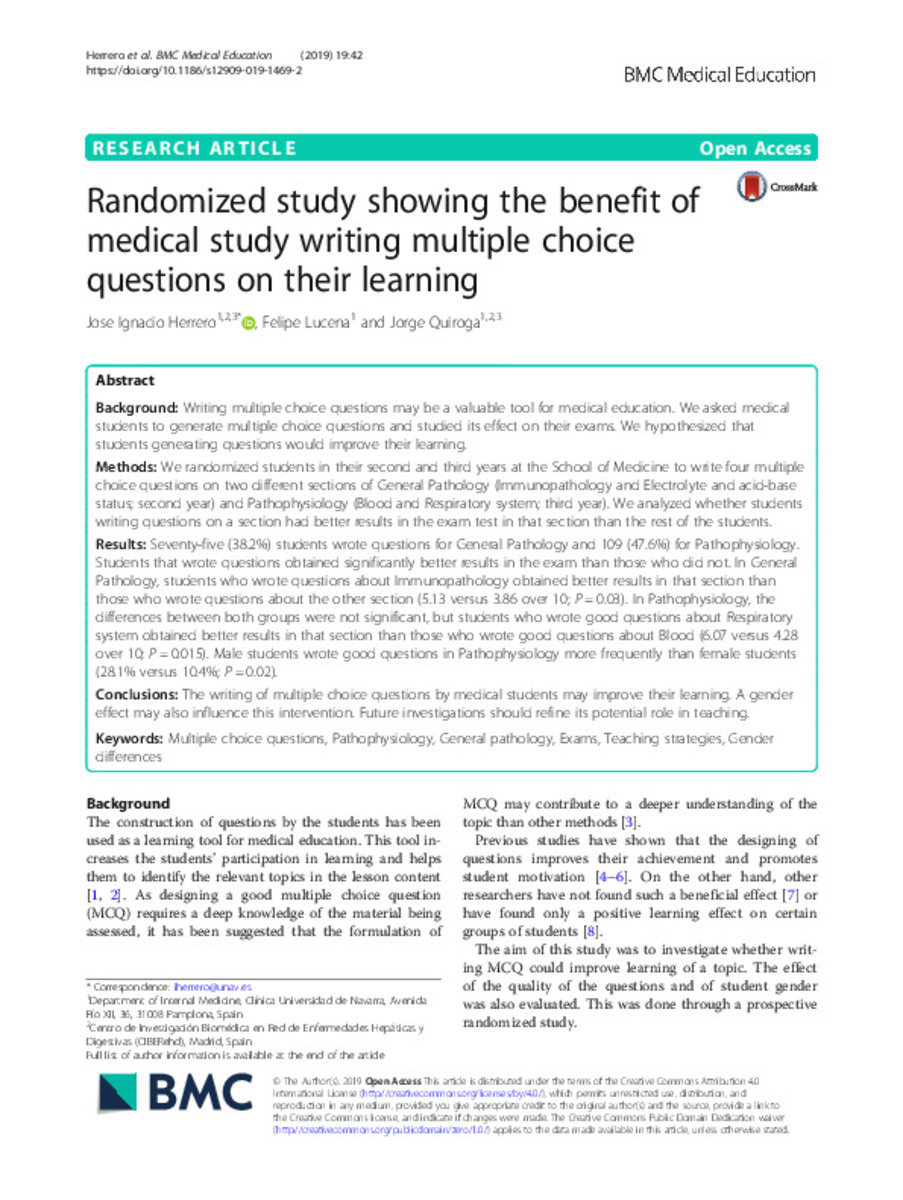Randomized study showing the benefit of medical study writing multiple choice questions on their learning
Keywords:
Multiple choice questions
Pathophysiology
General pathology
Exams
Teaching strategies
Gender differences
Publisher:
Springer Science and Business Media LLC
Note:
This article is distributed under the terms of the Creative Commons Attribution 4.0 International License (http://creativecommons.org/licenses/by/4.0/)
Citation:
Herrero, J.I. (José Ignacio); Lucena, F. (Felipe); Quiroga, J. (Jorge). "Randomized study showing the benefit of medical study writing multiple choice questions on their learning". BMC Medical Education. 19 (42), 2019, 2019
Statistics and impact
0 citas en

Items in Dadun are protected by copyright, with all rights reserved, unless otherwise indicated.







